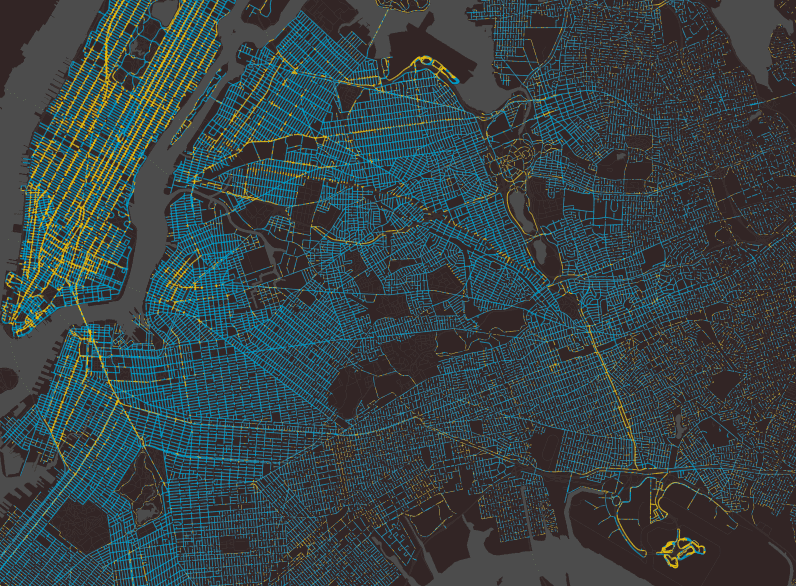
Mobility still sets the pace for open city data
Mobility, and the transit community in particular, were some of the earliest advocates and adopters of open data. Once again, this sector is proving to be a vigorous source of innovations that demonstrate the future potential of open data.
Transit, a Montreal-based app developer, sees a future where this paradigm is extended to ride-hail, and goes beyond simple discovery to open ticket bookings and payments operate—what in the mobility industry has come to be called "mobility as a service". The company is pushing for a new data standard, General On-Demand Feed Specification (GOFS), that builds the past success of open data standards for transit (GTFS) and bikeshare (GBFS). GOFS will allow any operator to publish information about available ride-hail services and fares, and any developer to aggregate and bundle them. This is a far cry from the market today, where mobility giants like Uber operate closed, vertically-integrated data exchanges that restrict access to discovery, booking, and payments. Third parties can't see what services are available, or broker purchases.
This points towards a future where open mobility data evolves into open ticketing, offering a potential bulwark against mobility monopolies. And it also provides a powerful model for open data in other urban tech sectors that can encourage innovation and competition.




..png)
